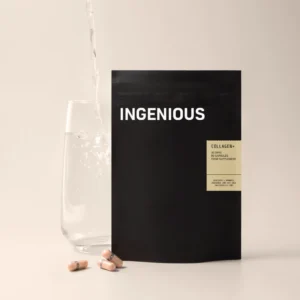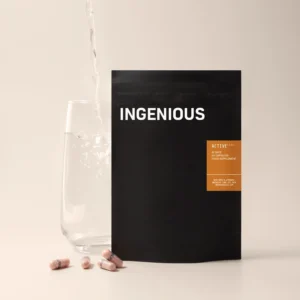ZINC
what is ZINC?
Zinc is a key dietary trace mineral required by the body for a number of functions including the activation of over 300 enzyme reactions. It is an essential nutrient as it cannot be synthesised in our bodies and neither can it be stored, so you need a daily supply for optimum health.
why is ZINC important?
After iron, zinc is the most abundant trace mineral in the human body and is present in every single cell. It is essential for numerous functions in the body and plays a critical role in supporting the immune system, wound healing, growth, metabolism and nerve function. Our bodies require zinc to manufacture T-lymphocytes (T-cells), a type of white blood cell that helps to break down foreign invaders in our bloodstream. Low zinc levels will result in reduced or weakened T-cells that are unable to recognise and attack these invaders, making us more susceptible to disease. This is why zinc is well-known for treating the common cold – it strengthens the cells our bloodstreams need to neutralise the virus.
HOW DOES ZINC PROTECT THE SKIN?
Zinc has antioxidant properties and is known to accelerate the renewal of skin cells, which is why zinc creams are often used to heal cuts and wounds and treat skin conditions like acne, eczema, and psoriasis. Being an anti-inflammatory agent, zinc can treat inflamed skin conditions like sunburn, rashes, and blisters. Zinc has been shown to:
- Help DNA synthesis and cell replication
- Help mitigate the effects of free radical damage
- Assist in the production of collagen
WHAT IS THE RIGHT AMOUNT OF ZINC TO TAKE?
People are advised to eat a healthy, varied diet to ensure they receive a good balance of vitamins and minerals. For example, a whole avocado will provide about 1.3mg of zinc, which is 13% of the recommended daily intake.



